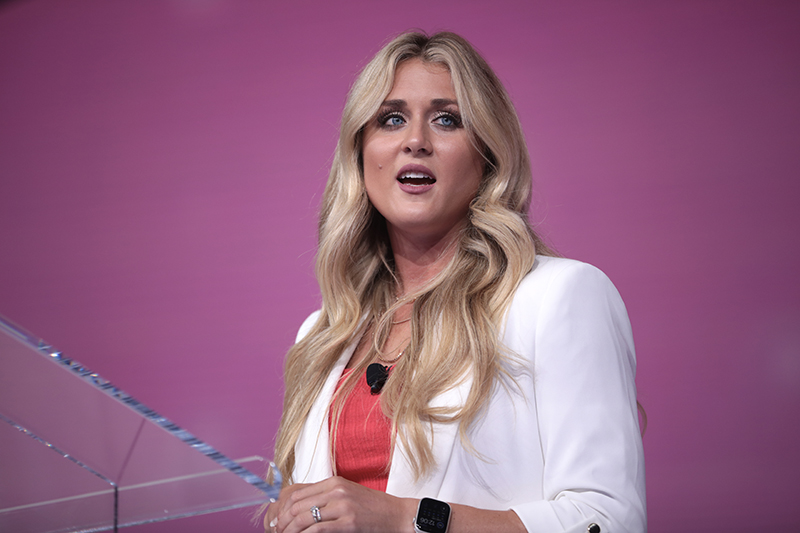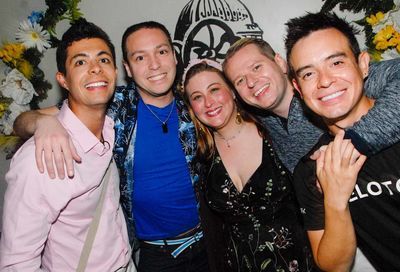Transgender inmate asks Supreme Court to hear medical care case

The U.S. Supreme Court has been asked to hear a transgender inmate’s appeal of a ruling denying her gender reassignment surgery.
Attorneys for Michelle Kosilek petitioned the nation’s highest court Monday to address whether the 8th Amendment prohibits the Massachusetts Department of Corrections from denying necessary medical treatment to a prisoner for non-medical reasons, such as security concerns. The appeal comes after the 1st Circuit Court of Appeals ruled 3-2 in December that Kosilek is not entitled to gender reassignment surgery under the 8th Amendment protecting her from cruel and unusual punishment.
That decision reversed a another by U.S. District Court Chief Judge Mark Wolf, who ruled in September 2012 that it is the “constitutional duty” of the Massachusetts Department of Corrections to grant Kosilek the surgery. That decision was appealed by Massachusetts Gov. Deval Patrick (D) and became a political issue in the state during an election year when Sen. Scott Brown (R) and his Democratic opponent, Elizabeth Warren, both voiced their opposition to the district court ruling. Out Rep. Barney Frank (D) also backed the appeal. In January 2013, a three-judge panel of the 1st Circuit Court of Appeals upheld Wolf’s decision. However, Massachusetts then asked for an en banc review of the decision by the full bench of the 1st Circuit, which overturned the ruling in December following oral arguments in May.
The petition was filed by Gay & Lesbian Advocates & Defenders (GLAD), attorney Joseph L. Sulman and the Boston law firm Goodwin Procter.
“The Court of Appeals looked at an incredibly thoughtful decision, written with extreme care and attention to the facts by District Court Judge Mark Wolf after a 28-day trial,” said Jennifer Levi, director of GLAD’s Transgender Rights Project, in a statement. “Instead of looking for errors of law, as it is supposed to do, the Court not only re-tried the case, it applied a standard of review no other court has ever applied to get the outcome it wanted.”
The 65-year-old Kosilek legally changed her name from Robert to Michelle in 1993 after being convicted of strangling her wife to death in 1990. She has been serving a life sentence without parole in a prison for males since January 1993. Kosilek sued the Massachusetts Department of Correction in 2000 on the grounds that refusing her gender reassignment surgery as recommended by her doctors was equal to cruel and unusual punishment. Kosilek previously tried to castrate herself and has twice attempted suicide.
The petition filed on behalf of Kosilek with the Supreme Court asserts that the 1st Circuit’s en banc review of the case was in fact a retrying of the case. As the petition states, “Two judges dissented. Both emphasized the same point: the majority had wildly overstepped the bounds of an appellate court.”
Among those who dissented were Judge O. Rogeriee Thompson, who labeled the majority opinion erroneous and misguided. “I am confident that I would not need to pen this dissent, over twenty years after Kosilek’s quest for constitutionally adequate medical care began, were she not seeking a treatment that many see as strange or immoral. Prejudice and fear of the unfamiliar have undoubtedly played a role in this matter’s protraction,” she wrote.
“This is a quintessentially fact-intensive case,” said Kosilek’s attorney, Joseph Sulman, in a statement. “The First Circuit found no legal error or clear factual error in Judge Wolf’s decision, which is what it must do to overturn his decision. The way the Court ran roughshod over the most basic of legal principles erodes the credibility of the judiciary. It should be alarming to every single lawyer, litigant, and defendant in a civil case.”
Four the the nine Supreme Court justices must agree to hear the case, but they have no obligation or time constraint to make that decision. The court would also need to move quickly for a ruling to come before the end of the court’s term in June.
Although the state fought Kosilek’s case, it is also not clear where current Massachusetts officials come down on the appeal to the Supreme Court. At the time of the December decision by the 1st Circuit, there was a different governor and attorney general. Now, a Republican occupies the governor’s office — Charlie Baker. Although Baker is considered pro-gay (he signed a recent Supreme Court brief calling for marriage equality nationwide), he has been less committal on transgender rights. Attorney General Maura Healey (D), who was elected last November at the same time as Baker, is in an especially unique position as the first out attorney general in the nation’s history. Baker’s office did not immediately responded to requests for comment on the petition of the case to the Supreme Court. Healey’s office declined to comment.
According to the petition, the case provides the Supreme Court with the opportunity to address medical treatment for all inmates, particularly as prisons face larger populations and budget cuts.
“Given these increasing pressures, courts are likely to see more and more cases involving prison officials’ reliance on non-medical considerations, such as cost, administrative convenience, and security, to justify the denial of medical treatment,” the petition states. “Until this Court makes clear that security and other non-medical concerns cannot justify a denial of adequate medical care, the duty articulated by this Court decades ago in Farmer v. Brennan will remain toothless — at least in the First Circuit.”
Support Metro Weekly’s Journalism
These are challenging times for news organizations. And yet it’s crucial we stay active and provide vital resources and information to both our local readers and the world. So won’t you please take a moment and consider supporting Metro Weekly with a membership? For as little as $5 a month, you can help ensure Metro Weekly magazine and MetroWeekly.com remain free, viable resources as we provide the best, most diverse, culturally-resonant LGBTQ coverage in both the D.C. region and around the world. Memberships come with exclusive perks and discounts, your own personal digital delivery of each week’s magazine (and an archive), access to our Member's Lounge when it launches this fall, and exclusive members-only items like Metro Weekly Membership Mugs and Tote Bags! Check out all our membership levels here and please join us today!






















